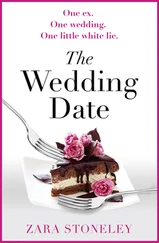What I want is to remember. I want it so much and so badly, maybe I could go back in time and get to that summer day in 1962 and make that beach off-limits, for two hours, to every possible Arab in this country. Or I could finally stand trial, yes, and watch the courtroom get crushed by the heat as I do so. Hallucinating, caught between the infinite and the panting of my own body in its cell, striving with muscle and thought against walls and imprisonment. I blame my mother, I lay the blame on her. The truth is, she committed that crime. She held my arm steady while Musa held hers and so on back to Abel or his brother. I’m philosophizing? Yes, yes I am. Your hero had a good understanding of that sort of thing; whether or not to commit murder is the only proper question for a philosopher, the only one he ought to ask. All the rest is chitchat. However, I’m only a man sitting in a bar. It’s the end of the day, the stars are coming out one by one, and the night has already given the sky a positively exhilarating depth. I love this regular denouement; the night calls the earth back to the sky and gives it a portion of infinity almost equal to its own. I killed at night, and ever since I’ve had night’s immensity for an accomplice.
Ah! You look surprised by my language. How and where did I learn it? At school. On my own. With Meriem. She helped me more than anyone to perfect my knowledge of your hero’s tongue, and she was the cause of my discovering and reading and rereading the book you carry around in your bag like a fetish. That was how French became the main tool of a meticulous, maniacal investigation. The two of us used the language like a magnifying glass as we went over the scene of the crime together. And with my tongue and Meriem’s mouth, I devoured hundreds of books! It seemed to me I was approaching the places where the murderer had lived, I was holding him by the jacket while he was embarking for nothingness, I was forcing him to turn around, look at me, recognize me, speak to me, respond to me, take me seriously: He trembled with fear at my resurrection, after he’d told the whole world I’d died on a beach in Algiers!
I figure the only trial I’m going to be put on is one I make up for myself right here in this crummy bar, so let me go back to the murder. You’re young, but you can serve as judge, prosecutor, public, and journalist … Well, after I’d killed a man, it wasn’t my innocence I missed the most, it was the border that had existed until then between my life and crime. That’s a line that’s hard to redraw later. The Other is a unit of measurement you lose when you kill. Afterward, I often felt an incredible, almost divine giddiness at the thought of somehow resolving everything — at least in my daydreams — by committing murder. The list of my victims was long. I’d start with one of our neighbors, a self-proclaimed “veteran mujahid,” whereas everyone knows he’s a crook and a con man who has taken money from the contributions of real mujahideen and diverted it to his own profit; then comes an insomniac dog, a brown, scrawny, wild-eyed creature that drags its carcass through the streets of my city; next up, a maternal uncle who for years came to see us every Eid, at the end of Ramadan, and promised to repay an old debt, without ever actually doing it; and finally, the first mayor of Hadjout, who treated me like a weakling because I hadn’t left to join the resistance like the others. Such thoughts became commonplace with me after I killed Joseph and threw his body down a well — a figure of speech, of course, because, as I’ve said, I buried him. What’s the point of putting up with adversity, suffering, or even an enemy’s hatred if you can resolve everything with a few simple gunshots? The unpunished murderer develops a certain inclination to laziness. But there’s something irreparable as well: The crime forever compromises both love and the possibility of loving. I killed a man, and since then, life is no longer sacred in my eyes. After what I did, the body of every woman I met quickly lost its sensuality, its possibility of giving me an illusion of the absolute. Every surge of desire was accompanied by the knowledge that life reposes on nothing solid. I could suppress it so easily that I couldn’t adore it — I would have been deceiving myself. I’d chilled all human bodies by killing only one. Indeed, my dear friend, the only verse in the Koran that resonates with me is this: “If you kill a single person, it is as if you have killed the whole of mankind.”
Say, this morning I read a fascinating article in an old, out-of-date newspaper. It told the story of a certain Sadhu Amar Bharati. I’m sure you’ve never heard of this gentleman. He’s an Indian who claims to have kept his right hand raised toward the sky for thirty-eight years. As a result, his arm’s nothing more than a bone covered with skin. It will remain fixed in its position until he dies. Maybe that’s how it goes for all of us, basically. For some, it’s both arms, embracing the void left behind by a beloved body; for others, it’s a hand holding back a child already grown, or a leg raised above a threshold never crossed, or teeth clenched on a word never uttered, et cetera. The idea’s been amusing me all day. Why hasn’t this Indian ever lowered his arm? According to the article, he’s a man of middle-class background, he had a job, a house, a wife, and three children, and he led a normal, peaceful life. One day he received a revelation; his God spoke to him and commanded him to tramp tirelessly through the country and preach world peace, always holding up his right arm. Thirty-eight years later, his arm is petrified. I like this strange anecdote, it resembles the story I’m telling you. More than half a century since the gunshots were fired on the beach, my arm’s still raised, impossible to lower, wrinkled, eaten away by time — dry skin on dead bones. Except that’s the way I feel about my entire being: All the muscles are gone, but it’s stretched out and painful. Because holding this posture doesn’t involve merely depriving yourself of a limb, it likewise entails atrocious, piercing pains — although they’ve disappeared nowadays. Listen to this: “It used to be painful, but I’ve become used to it now,” the Indian declares. The journalist describes his martyr in great detail. The man’s arm has lost all feeling. Fixed in a semi-vertical position, it’s become atrophied, and the fingernails of his right hand curl around upon themselves. At first, the story made me smile, but now I’m considering it seriously. It’s a true story, for I’ve lived it myself. I’ve seen Mama’s body stiffen into the same strenuous, irreversible pose. I’ve seen it dry up like that man’s useless arm, raised against the force of gravity. Mama is, in fact, a statue. I remember that when she wasn’t doing anything, she’d just stay there, sitting on the ground, unmoving, as though devoid of all reason for existence. Oh, yes! Years later, I discovered how much patience she’d had and how she’d hoisted the Arab — that is, me — into that scene, where he was able to take hold of a revolver, execute the roumi Joseph, and bury him.
Let’s go home, young man. As a general rule, one sleeps better after a confession.
The day after my crime, everything was very peaceful. I’d fallen asleep in the courtyard, worn out by gravedigging, and it was the smell of coffee that woke me up. Mama was singing! I remember that very well, because it was the first time she’d allowed herself to sing, even if only sotto voce. You never forget the first day in the world. The lemon tree practically pretended not to have seen anything. I decided I wouldn’t go out that day. My mother’s nearness, her kindness, her consideration were of the sort reserved for a child prodigy, or a traveler who’s finally come home, or a relative given back by the sea, dripping and smiling. She was celebrating Musa’s return. So I turned aside when she handed me a cup, and I nearly pushed away her hand, which for an instant had grazed my hair. However, I knew at the very instant when I was rejecting her that I’d never be able to bear having any other body close to mine. I’m exaggerating? Committing a real murder gives one some new, clear-cut certitudes. Read what your hero wrote about his stay in a prison cell. I often reread that passage myself, it’s the most interesting part of his whole hodgepodge of sun and salt. When your hero’s in his cell, that’s when he’s best at asking the big questions.
Читать дальше












